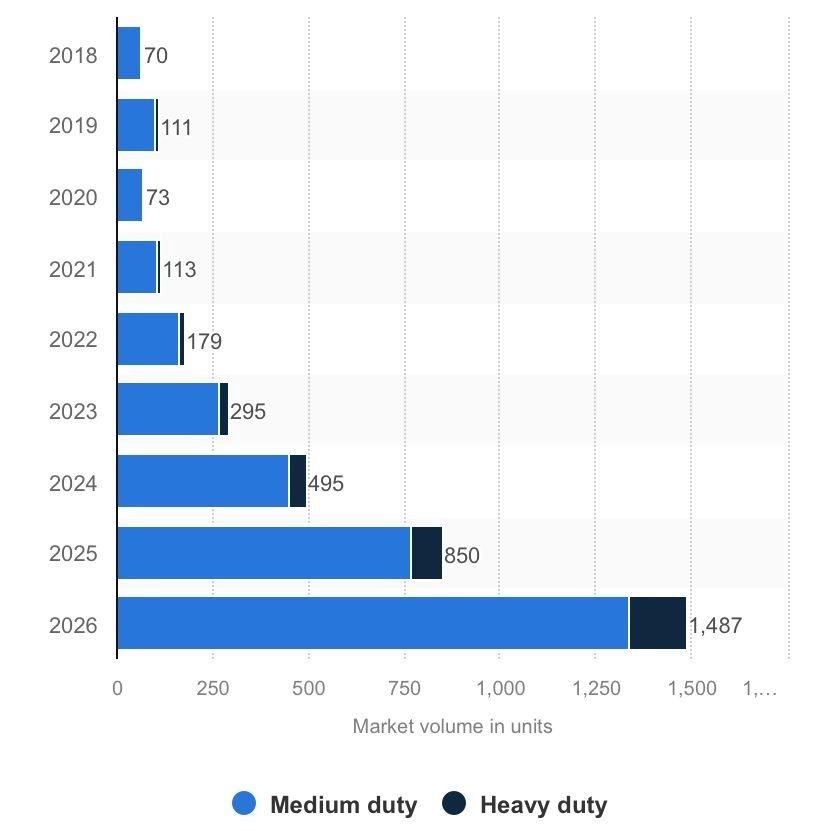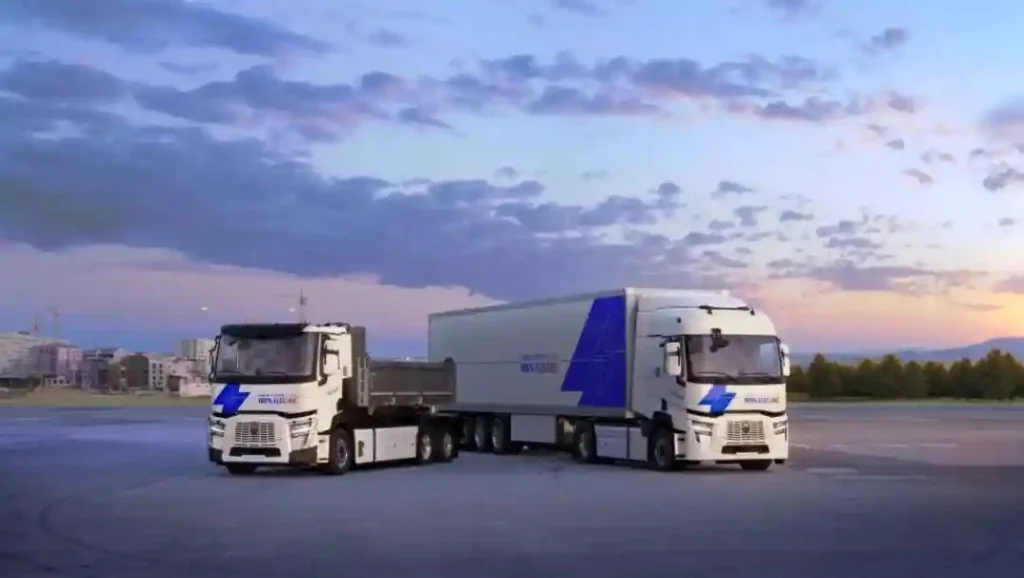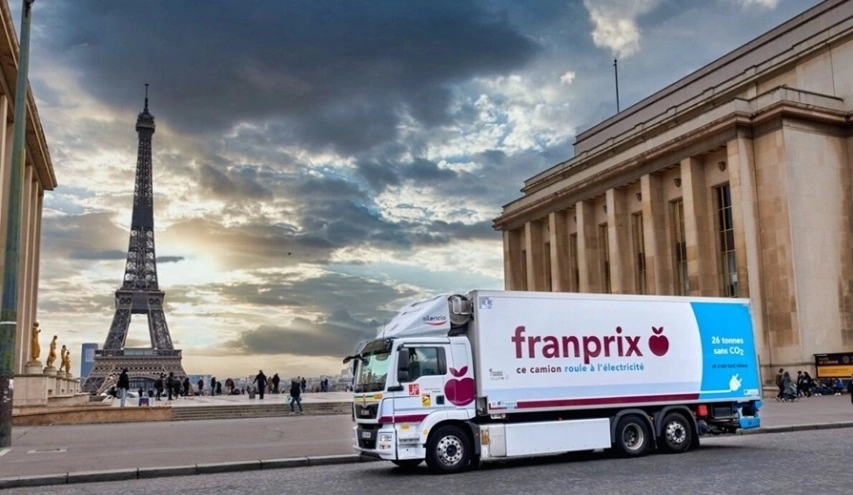In recent times, the French government has toughened penalties for high-emission heavy vehicles to reduce their circulation.
In this sense, it is expected that the numbers of eTrucks in fleets will soar in the coming years.

By the end of 2026, the country should have a total of 1,487 electrified trucks.
This result comprises 1,339 vehicles for transporting medium loads and 148 for heavy loads.
This estimate, calculated by Statista Market Forecast, represents an increase of over 500 per cent in just three years.
Furthermore, it indicates a clear popularity of medium load units, a trend that is already reflected in the current numbers. Around 89 per cent of electric trucks fall into this category.
It is worth mentioning that during 2023, 295 eTrucks were registered in France.
While these figures represent a 65 per cent increase from the 179 units registered in 2022, currently, the share of electrified trucks only accounts for 0.8 pe rcent of the annual production of heavy vehicles.
This number is low when compared to the European level, which hovers around 1.5 per cent of green fleets within the total truck market.
Although these figures are not positive, it is estimated that there will be exponential growth in the sector in France in the coming years.
On the other hand, it is noteworthy that, according to a report published by the European Automobile Manufacturers’ Association (ACEA), as of October 2023, heavy-duty vehicles experienced significant growth, increasing by 321.7 per cent.
Germany (+297.9 per cent) and the Netherlands (+1,463.6 per cent) led this trend, contributing to eTrucks representing 1.5 per cent of the market at that time.
This figure marked a significant change from the 0.4 per cent in 2022.
France is betting on the manufacturing of e-Trucks
In November 2023, Renault Trucks began the serial production of its electric heavy-duty trucks at the historic Bourg-en-Bresse plant.
After 60 years of assembling commercial heavy vehicles, this facility is now ready to manufacture the Renault Trucks E-Tech T and C models.
Specifically designed for regional distribution and urban construction, these units represent the latest additions to the company’s comprehensive all-electric range.

Another company betting on the introduction of electric trucks to the French market is Iveco.
The brand unveiled the Iveco Heavy Duty BEV on the sidelines of the Truck Grand Prix at the Nürburgring in July of 2023.
The Iveco S-Way platform is based on the battery-electric and fuel cell variants (the Iveco Heavy Duty FCEV).
Thanks to a modular architecture, the platform can accommodate both battery and fuel cell drive technologies.
Both models are equipped with an FPT Industrial electric axle and Proterra batteries.
How does the French Government discourage polluting trucks?
The government strengthened a governmental legislation called “malus ecologique,” a penalty tax aimed at discouraging the use of high-emission vehicles.
The single tax, paid at the time of initial registration of a vehicle in France, now applies to vehicles emitting 118 grams per kilometer (g/km) or more, according to the Worldwide Harmonised Light Vehicles Test Procedure (WLTP).
This threshold was reduced from the previous 123 grams per kilometer.
The tax starts at 50 euros and increases significantly with higher carbon dioxide emissions, reaching a maximum of 60,000 euros for emissions exceeding 193 grams per kilometer.
Additionally, the penalty for heavy internal combustion engine (ICE) vehicles, weighing 1,800 kilograms or more, has been extended to all cars weighing over 1,600 kilograms.
The penalty is calculated based on excess weight, with rates ranging from ten to 30 euros per kilogram, depending on the weight category.
It is estimated that approximately ten per cent of new diesel and gasoline cars sold in France in 2024 weigh more than 1,800 kilograms.







